Today I have finally completed my Understanding New Media essay! As well as handing in a hard copy to tutors, I have been instructed to post it to my blog. So here it is! But expect to see a few more posts before Friday, including disguarded research and ideas and anything else I've come across along the way!
How Technology Shapes My LifeIn this essay I will be delving into the history of four technologies and explaining the importance they hold in my daily life. I will also look into the origins and ideas behind the technology and briefly at how they look set to develop in the near future. The four that I have chosen include Facebook, television, the Xbox 360 and iPods.
I have been signed up to social networking websites since I was 13 years old, and have been using them very nearly every day ever since.
The idea that computers could be linked to allow interaction and networking was suggested very early on in the development of the Internet. Social networking sites began to emerge in the early part of the 80s and allowed users to interact using chat rooms and forums.
In 2004, Facebook was launched. Facebook connects you with the people you know and care about. It enables you to communicate, stay up to date, and keep in touch with friends and family anywhere. It facilitates your relationships online to help enhance them in person. Specifically, Facebook connects you with the people you know around the content that is important to you (Leah Pearlman, 2009. Facebook for Dummies. 2nd ed. John Wiley & Sons. p1).
In 2010, social networking websites have users signed up in their millions with more joining every day. Facebook alone has 400 million active users, with 50% of those logging into the site in any given day (Facebook. Facebook Statistics. http://www.facebook.com/press/info.php?statistics [Accessed 24 April 2010]).
Facebook has become an important part of my daily life. I log in nearly every day to check messages and talk to friends. I find it a great way to keep in touch and up to date. I also use Facebook to connect with venue and festival pages to be kept informed about new announcements. Facebook and other sites have also now spread onto mobile technology and I use my BlackBerry phone to post and update, message and talk whenever I need to.
I think this quick and easy method of communication appeals to people because it’s a source of free communication, but also because of the personal community and network you can create for yourself. I think the opportunity to project your personality, ideas and opinions into the network also appeals.
The last two decades have seen some of the most important changes and developments in television technology. The switch from VHS to DVD and BluRay, analogue to digital and the developing world of gaming have all shaped the way in which we see and use television. I think it’s amazing that this piece of 80 year old technology is always being altered and added to.
In television’s early years, people were merely experimenting with sending images, and in 1878, the first moving images were transmitted. Over the next 50 years, the technology was developed greatly and in 1929, the UK saw its first television broadcast.
Over the years since, the use of television has changed dramatically. In the early 80s, VHS replaced Betamax as leader of the home video industry, but was threatened itself by DVD in the late 90s. DVD caught on quickly as it offered greater quality picture and better sound at a reasonable price. Today, BluRay has also emerged to take on the DVD, but DVD still remains the dominant format.
Digital is also currently replacing the analogue television service. The “digital switchover” will render non-digital televisions incapable of receiving broadcasts unless they are upgraded. Wales recently became the first nation in the UK to be fully digital, with the last of the analogue TV signals now switched off. The biggest change to TV since colour was introduced over 40 years ago is under way and the UK is expected to be fully converted by 2012 (Business.scotsman.com. Digital switchover is on the way: make sure you’re ready. http://business.scotsman.com/business/Digital-switchover-is-on-the.6234004.jp [Accessed 25 April 2010]).
The future of television also looks set to be exciting as 3D and Internet TVs are introduced. The first line of 3D televisions was introduced in April 2010 and Internet TV allows the user to go online through their home televisions.
The television is definitely the technology that has been part of my life longest. Whether I’m watching broadcast programmes, DVDs or playing games, the television is a crucial source of entertainment and information in my life and allows me to fuel my passion for film and animation. Using my Xbox 360 would also not be possible without television and perhaps gaming and computer technology as we know it would not have emerged without its existence.
I have always been interested in the developing world of the gaming industry and have owned consoles for around 12 years. My first console was Sega’s Master System, and I have owned many through the years since to my current Xbox 360.
In 2001, Microsoft stepped into the gaming industry with the Xbox. The console’s technology impressed gamers and critics alike and it managed to compete well with the already established PlayStation brand. Its success could also be accredited to the games that Microsoft secured as exclusives, such as Halo.
The Xbox was discontinued shortly after the Xbox 360’s release in late 2005. The 360 was equipped with a large storage space, online play and superior audio and video capabilities, including high definition. The 360 is currently one of the three most popular consoles, the other two being the PlayStation 3 and the Nintendo Wii.
According to vgchartz.com, in 2010 the 360 ranks 3rd in amount of units sold of the three main consoles. The 360 recently tipped the 40 million units sold mark, meaning it has sold nearly 6 million more than PlayStation 3 since release, but around 30 million less than Nintendo Wii (VGChartz. Worldwide Yearly Chart for 2010. http://www.vgchartz.com/yearly.php [Accessed 27 April 2010]).
Since its release, it has seen many developments and upgrades, including game add-ons, downloadable content including film and TV, Facebook, Graphical User Interface alterations, a Windows Media Center and Sky TV. The 360 is also set to be developed in the coming years, with advanced camera and movement technology being introduced in the form of hardware such as Project Natal.
The main reason the Xbox 360 appeals to me is the amount of applications it offers. As well as gaming alone or online, I can use it to browse the internet, use Facebook, download music and programmes, rent films and watch live Sky TV. This great amount of functions makes it hugely important to me, especially the online play because I have friends in various parts of the country and I think that being able to play games together, rather than just using messaging services to communicate is a great way to keep a bond and a connection between people.
I have owned personal music players from a very young age. I can still remember being given a Sony Walkman cassette player for my 8th birthday and loving the fact that I could listen to my Smurfs cassettes wherever I was! Then when I got older, I discovered Rock and Metal music and soon purchased a personal CD player.
The world of portable music has changed dramatically since. A working prototype of the first digital audio player had been developed in 1979, but it wasn’t until the late 90s that the technology was made available to the masses and became hugely popular. Launched in 2001, Apple’s iPod is currently the leader of the digital media player market, outselling all other digital players - including rival Microsoft’s Zune.
Since its debut, the iPod has been consistently developed. New iPods have been released almost every year with features such as games, photos, videos, cameras and the Internet being added. And it’s come a long way from those first 5 gigabytes: now you can stuff up to 160 gigabytes of music, photos, videos, and more onto it. In those 160 gigabytes, you can fit 40,000 and you don’t have to stock up on the Duracells, either, because the iPod’s rechargeable battery can play audio for 36 hours (J.D. Biersdorfer, 2008. iPod: The Missing Manual. 7th ed. O’Reilly Media. p2).
Apple now has six generations of its now called “classics” range and I have owned the first of the fourth generation for around 4 years. My iPod has a 20GB capacity, a black and white screen and not many other features. Seeing as I only want an iPod to listen to my music collection, I have felt no need to upgrade to a more recent model, although I do see the new designs as amazing advancements in portable technology. Personally, I think that the next step with this technology is simply the addition of more and more features and I think the iPhone - with its combination of so many features and applications - stands out as a sign of what’s to come.
It’s very important to me to have my music collection freely available wherever I am. It serves as entertainment on journeys, keeps me motivated and also allows me to cut off from the world if I like. I have also extended the use of my iPod through portable speakers, almost eradicating the need for a stereo system in my bedroom, although I do still collect CDs.
Whilst researching for this project, it came to my attention that whilst these technologies have developed separately, they have ultimately branched out into each other to expand their own horizons and capabilities. This can be seen by the Xbox 360 having Sky TV or iPods having the Internet. I think that the rise of “all in one” technology will eventually result in the need to own much less, for example, I no longer own a DVD player as my Xbox 360 plays DVDs.
Also while writing this essay and reflecting on my experiences, I can see how much I’ve come to rely on these technologies in my daily life, for work, play and interaction. With technology surrounding us and constantly available, I feel that myself and many others have come to depend on it. Our lives would be very different without the developments of the past century - the technology we have developed now determines the way we live our lives.
Andrew Edwards
 Facebook users took part in a huge "mock poll", in which Nick Clegg and the Liberal Democrats came top.
Facebook users took part in a huge "mock poll", in which Nick Clegg and the Liberal Democrats came top.
 Released in April 2010, the iPad is a new tablet-style personal computer, operated by fingertips on its revolutionary touch sensitive interface.
Released in April 2010, the iPad is a new tablet-style personal computer, operated by fingertips on its revolutionary touch sensitive interface. Bungie's Halo was the most successful of these games, and revolutionised the FPS (First Person Shooter) genre.
Bungie's Halo was the most successful of these games, and revolutionised the FPS (First Person Shooter) genre.


 This iPod was largely the same as the previous generations, except the four buttons moved down to a clickable, touch sensitive wheel. These were available in 20GB and 40GB sizes, USB anf FireWire were both integrated fully.
This iPod was largely the same as the previous generations, except the four buttons moved down to a clickable, touch sensitive wheel. These were available in 20GB and 40GB sizes, USB anf FireWire were both integrated fully.




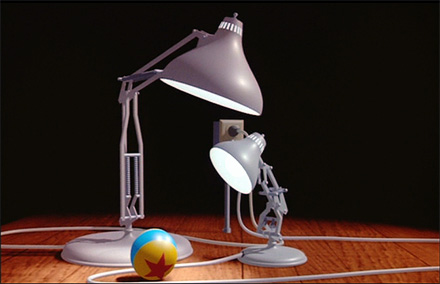
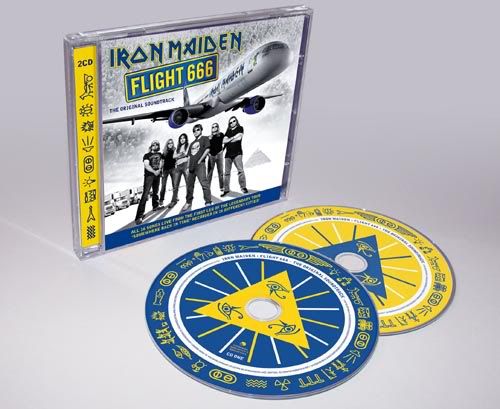 CD (Compact Disc): CDs have been commercially available since October 1982. In 2010, they remain the standard physical storage medium for audio.
CD (Compact Disc): CDs have been commercially available since October 1982. In 2010, they remain the standard physical storage medium for audio.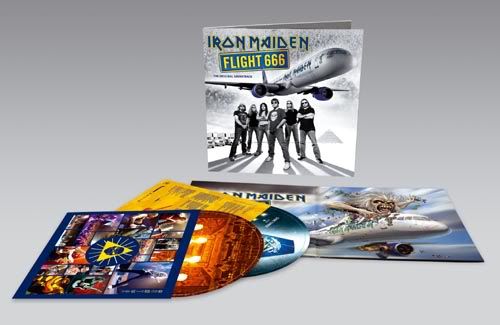 LP (Long Playing) record album: They were first introduced in 1948, and served as a primary release format for recorded music until the compact disc began to significantly displace them by beginning of 1988. As of 2006, a renewed interest in vinyl has occurred and the demand for the medium has been on a steady increase yearly in niche markets. The long-playing record is an analog format.
LP (Long Playing) record album: They were first introduced in 1948, and served as a primary release format for recorded music until the compact disc began to significantly displace them by beginning of 1988. As of 2006, a renewed interest in vinyl has occurred and the demand for the medium has been on a steady increase yearly in niche markets. The long-playing record is an analog format.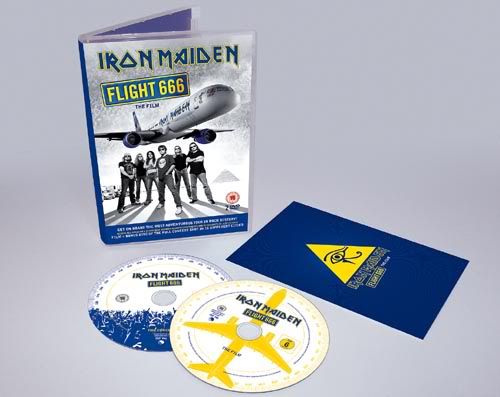 DVD (Digital Versatile Disc): An optical disc storage media format, and was invented and developed by Sony, and Philips in 1995. It's main uses are video and data storage. DVDs are of the same dimensions as CDs, but store more than six times as much data.
DVD (Digital Versatile Disc): An optical disc storage media format, and was invented and developed by Sony, and Philips in 1995. It's main uses are video and data storage. DVDs are of the same dimensions as CDs, but store more than six times as much data.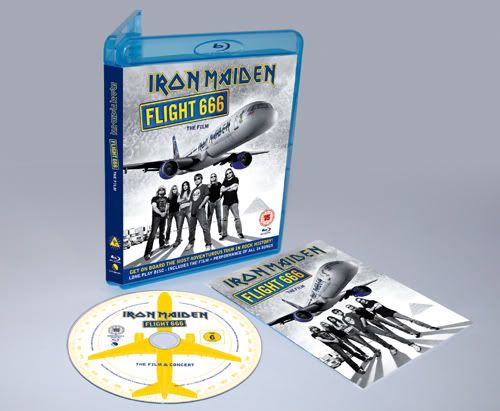 BluRay Disc: An optical disc storage medium designed to supersede the standard DVD format. Its main uses are for storing high-definition video, PlayStation 3 video games and other data. During the format war over high-definition optical discs, Blu-ray competed with the HD DVD format. Toshiba, the main company supporting HD DVD, conceded in February 2008, and the format war ended. Blu-ray Disc was developed by the Blu-ray Disc Association and of June 2009, more than 1,500 Blu-ray disc titles are available in Australia and the United Kingdom, with 2,500 in Japan, the United States and Canada.
BluRay Disc: An optical disc storage medium designed to supersede the standard DVD format. Its main uses are for storing high-definition video, PlayStation 3 video games and other data. During the format war over high-definition optical discs, Blu-ray competed with the HD DVD format. Toshiba, the main company supporting HD DVD, conceded in February 2008, and the format war ended. Blu-ray Disc was developed by the Blu-ray Disc Association and of June 2009, more than 1,500 Blu-ray disc titles are available in Australia and the United Kingdom, with 2,500 in Japan, the United States and Canada. This exhibit is a small space enclosed by prison doors. You can only view the piece by looking through panels and holes in the doors. Inside are glass 'tears' suspended in the centre of the doors which are coated blood red. I very much liked the idea of art exhibited in this way.
This exhibit is a small space enclosed by prison doors. You can only view the piece by looking through panels and holes in the doors. Inside are glass 'tears' suspended in the centre of the doors which are coated blood red. I very much liked the idea of art exhibited in this way. This sculpture is made completely from hangers! I love the idea of creating something out of a strange media or things that wouldn't usually be considered.
This sculpture is made completely from hangers! I love the idea of creating something out of a strange media or things that wouldn't usually be considered.



 Iron Maiden are my favourite Heavy Metal band and for me, are the epitomy of the whole genre. They have always inspired me and being a fan has given me the opportunity to travel to new places and meet many people.
Iron Maiden are my favourite Heavy Metal band and for me, are the epitomy of the whole genre. They have always inspired me and being a fan has given me the opportunity to travel to new places and meet many people. 
 Microsoft's XBOX and indeed other consoles have always been a big part of my life. I've owned Sega Master System, Megadrive (I+II), PlayStation, PlaySation 2, XBOX 360, Gameboy Colour, Gameboy Advance, PSP... so I feel I've been watching the development of games consoles for a long time. From the movement of cartridges to discs, 2D to 3D graphics, the addition of online play, hard drives, HD, wireless hardware and other great advancements. The future of gaming looks very exciting!
Microsoft's XBOX and indeed other consoles have always been a big part of my life. I've owned Sega Master System, Megadrive (I+II), PlayStation, PlaySation 2, XBOX 360, Gameboy Colour, Gameboy Advance, PSP... so I feel I've been watching the development of games consoles for a long time. From the movement of cartridges to discs, 2D to 3D graphics, the addition of online play, hard drives, HD, wireless hardware and other great advancements. The future of gaming looks very exciting!